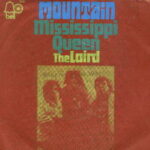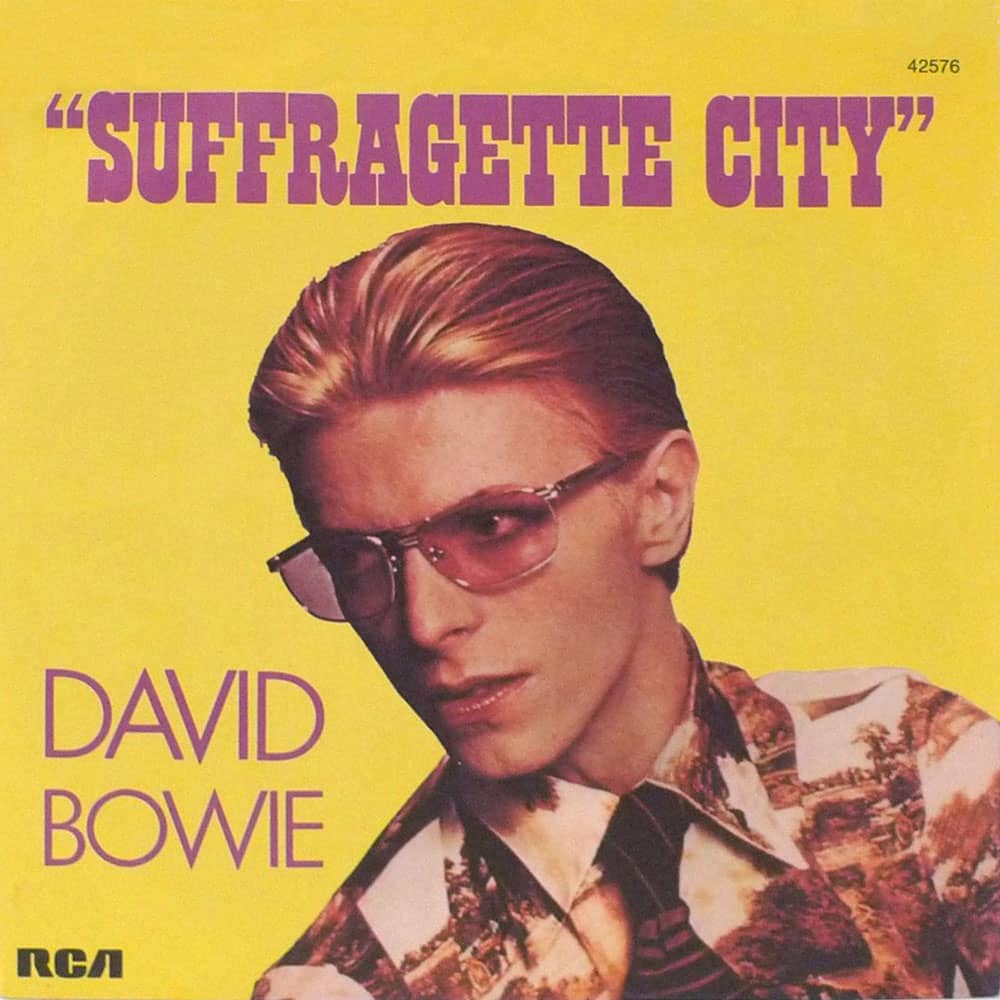 Mountain’s “Mississippi Queen” is a track that doesn’t just play—it commands attention. Released in 1970 on the band’s debut album Climbing!, the song instantly established Mountain as a force in hard rock, carving a distinct niche alongside contemporaries like Led Zeppelin, Deep Purple, and Cream. From its instantly recognizable cowbell intro to Leslie West’s searing guitar tone and Felix Pappalardi’s thunderous bass, “Mississippi Queen” captures the raw energy, swagger, and rebellious spirit of early 1970s rock. More than just a hard rock anthem, it became a cultural symbol of rock’s power and freedom, influencing generations of musicians and shaping the sound of American rock music.
Mountain’s “Mississippi Queen” is a track that doesn’t just play—it commands attention. Released in 1970 on the band’s debut album Climbing!, the song instantly established Mountain as a force in hard rock, carving a distinct niche alongside contemporaries like Led Zeppelin, Deep Purple, and Cream. From its instantly recognizable cowbell intro to Leslie West’s searing guitar tone and Felix Pappalardi’s thunderous bass, “Mississippi Queen” captures the raw energy, swagger, and rebellious spirit of early 1970s rock. More than just a hard rock anthem, it became a cultural symbol of rock’s power and freedom, influencing generations of musicians and shaping the sound of American rock music.
Origins of a Rock Classic
Mountain emerged from the ashes of the late ’60s blues-rock and psychedelic scene, drawing on heavy blues riffs, improvisational jams, and a raw, unfiltered energy that set them apart. Guitarist Leslie West, bassist and producer Felix Pappalardi, and drummer Corky Laing formed the nucleus of the band, each bringing decades of musical experience and a shared passion for heavy rock.
The genesis of “Mississippi Queen” was a collaborative effort. Pappalardi co-wrote the track with David Rea, crafting a driving, blues-infused riff that would become the backbone of the song. Leslie West’s guitar work transformed the riff into a roaring statement of power, while Corky Laing’s explosive drumming punctuated each beat with precision and force. From the very first notes, “Mississippi Queen” announces itself as a song of energy, attitude, and unrelenting momentum.
The Iconic Cowbell and Groove
Few songs in rock history are defined by a single percussive element as much as “Mississippi Queen” is by its cowbell. The opening cowbell hit immediately commands attention, providing both rhythm and personality. Corky Laing’s skillful drumming ensures that the cowbell is not a gimmick but an integral part of the groove. Its steady pulse propels the song forward, creating an infectious drive that makes listeners want to move and immediately signals that they are in for a rock experience that is both raw and refined.
The cowbell’s prominence in “Mississippi Queen” influenced countless other tracks, elevating percussion as a signature component in rock arrangements. Its inclusion demonstrates Mountain’s innovative approach, blending traditional blues-rock instrumentation with rhythmic quirks that became iconic.
Guitar Riffs and Sonic Identity
Leslie West’s guitar tone is the centerpiece of “Mississippi Queen.” His playing is thick, saturated, and expressive, capturing both the blues roots of the band and the heavier, more aggressive tone that would come to define hard rock. The main riff is simple yet unforgettable, looping with a hypnotic power that drives the song forward.
West’s guitar solo exemplifies the balance between technical skill and emotional expression. Every bend, note, and sustain conveys intensity and character, transforming the solo into more than a technical exercise—it becomes a narrative voice within the song. This approach to guitar playing, emphasizing feel over flash, has influenced generations of rock and metal guitarists.
Lyrics and Narrative Energy
The lyrics of “Mississippi Queen” tell a story of longing and admiration, blending Southern imagery with rock bravado. Lines such as “Mississippi Queen, if you know what I mean / Mississippi Queen, she taught me everything” evoke both a sense of place and a larger-than-life persona. The song paints a picture of a magnetic, independent woman while celebrating the freewheeling lifestyle of rock musicians, creating an image that resonates with themes of freedom, desire, and rebellion.
Vocally, Leslie West delivers the lyrics with raw power and authenticity. His voice alternates between gritty intensity and melodic warmth, perfectly complementing the instrumental foundation. This vocal approach, grounded in emotion rather than perfection, adds a human element to the song’s heavy musical framework.
Musical Structure and Hard Rock Innovation
“Mississippi Queen” is deceptively simple in structure, but its arrangement demonstrates sophistication and intent. The song alternates between a driving verse and a raucous chorus, anchored by a powerful rhythm section and punctuated by guitar fills and solos. This dynamic structure creates tension and release, engaging the listener and reinforcing the song’s infectious energy.
Felix Pappalardi’s bass playing is central to the song’s impact. His lines are both melodic and forceful, reinforcing the guitar riff while adding harmonic depth. The synergy between bass, guitar, and drums creates a dense, energetic sound that became a hallmark of Mountain’s approach to hard rock.
Cultural Impact and Reception
Upon release, “Mississippi Queen” quickly became a staple of rock radio, celebrated for its raw energy, catchy riff, and distinctive groove. Its success helped cement Mountain’s reputation as a heavyweight in the rock world, capable of producing music that was both commercially viable and artistically daring.
The song’s impact extends beyond its chart performance. “Mississippi Queen” has become a cultural reference point, appearing in films, commercials, and video games. Its cowbell intro alone has become a shorthand for rock swagger and attitude. The song’s influence on subsequent hard rock and heavy metal bands cannot be overstated, serving as a blueprint for riff-driven, groove-centered music.
Live Performances and Stage Presence
Mountain’s live performances of “Mississippi Queen” further amplified the song’s reputation. Leslie West’s guitar playing, combined with Corky Laing’s precise drumming and Felix Pappalardi’s commanding presence, created a live experience that was intense, energetic, and immersive. The song’s structure allowed for improvisation, extended solos, and audience interaction, making it a highlight of every concert.
The band’s ability to translate the studio intensity of “Mississippi Queen” into a live setting contributed to its enduring appeal. Fans were not just hearing a song—they were experiencing a performance that embodied the spirit of rock ‘n’ roll. This live legacy helped the track maintain relevance for decades, inspiring countless tribute acts and cover versions.
Influence on Hard Rock and Heavy Metal
“Mississippi Queen” is a foundational track in the evolution of hard rock and heavy metal. Its combination of blues roots, aggressive riffs, and driving rhythm helped define the sound of early ’70s rock. Bands such as AC/DC, Led Zeppelin, and later metal acts drew inspiration from Mountain’s approach, adopting the heavy riff structures, strong groove, and dynamic vocal delivery that “Mississippi Queen” exemplified.
The song’s influence also extended to guitar technique. Leslie West’s tone, use of sustain, and phrasing influenced generations of guitarists, encouraging a focus on emotional expression and sonic impact over purely technical virtuosity. This approach became a defining characteristic of hard rock and heavy metal guitar playing.
The Role of Felix Pappalardi
Felix Pappalardi’s contribution to “Mississippi Queen” extends beyond bass performance. As producer and co-writer, Pappalardi shaped the song’s sound and structure, ensuring that each element served the song’s energy and narrative. His understanding of dynamics, rhythm, and arrangement helped transform a simple blues riff into a hard rock anthem capable of standing the test of time.
Pappalardi’s work with Mountain also demonstrated the importance of collaborative chemistry in rock music. His ability to balance the band’s raw energy with polished production contributed to the song’s lasting appeal, creating a sound that was both powerful and accessible.
Legacy and Modern Recognition
Decades after its release, “Mississippi Queen” remains a benchmark of rock excellence. It has been featured in numerous “greatest songs” lists, covered by artists across genres, and celebrated in rock retrospectives. The song’s distinctive elements—its cowbell, riff, and driving groove—have become part of the rock lexicon, influencing countless musicians and listeners.
The track’s enduring popularity is also reflected in media appearances. It has appeared in films like School of Rock and video games such as Guitar Hero, introducing new generations to Mountain’s legacy and reaffirming the song’s relevance. Its influence on the culture of rock is undeniable, shaping both the sound and the attitude of subsequent generations of musicians.
Technical Analysis and Musicianship
“Mississippi Queen” demonstrates technical skill beneath its raw exterior. Leslie West’s guitar work balances power and precision, combining pentatonic scales with bluesy bends and vibrato. Corky Laing’s drumming is tight yet expressive, emphasizing groove and rhythmic punctuation. Felix Pappalardi’s bass lines anchor the harmonic structure while interacting with the drums to create a driving, cohesive rhythm section.
The song’s arrangement—alternating between riff-driven verses and explosive choruses—creates a sense of motion and excitement. This careful structuring allows the band to maintain energy while giving each musician space to showcase their abilities. The result is a track that feels effortless in its groove yet meticulous in its construction.
Cultural Symbolism and Attitude
“Mississippi Queen” embodies the rebellious, freewheeling spirit of early ’70s rock. Its narrative, instrumentation, and performance capture the essence of an era when rock music celebrated power, individuality, and energy. The song’s combination of story, groove, and intensity resonates with themes of freedom, desire, and confidence, creating a lasting cultural symbol for rock enthusiasts.
The cowbell, in particular, became emblematic of rock swagger, inspiring parodies, homages, and an enduring recognition that extends beyond the song itself. It stands as a testament to the impact of seemingly simple musical elements when combined with attitude and energy.
Conclusion: The Song That Roared Through Time
“Mississippi Queen” is more than a debut single—it is a declaration of intent from a band poised to leave an indelible mark on rock history. Mountain’s combination of guitar power, rhythmic precision, and raw energy created a track that has influenced generations of musicians and captured the imagination of fans worldwide.
From its cowbell-driven opening to its thunderous riffs, dynamic vocals, and relentless groove, “Mississippi Queen” exemplifies the essence of hard rock. Its enduring legacy lies in its ability to balance simplicity and sophistication, narrative and performance, energy and musicianship.
Decades after its release, the song remains a defining anthem of rock ‘n’ roll—a track that demands attention, invites movement, and celebrates the power of music to inspire, excite, and endure. “Mississippi Queen” is a testament to Mountain’s vision, a sonic icon of its era, and a blueprint for the rock music that followed.
“Mississippi Queen” is not just a song; it is a roaring statement of rock’s power, attitude, and timeless appeal.


